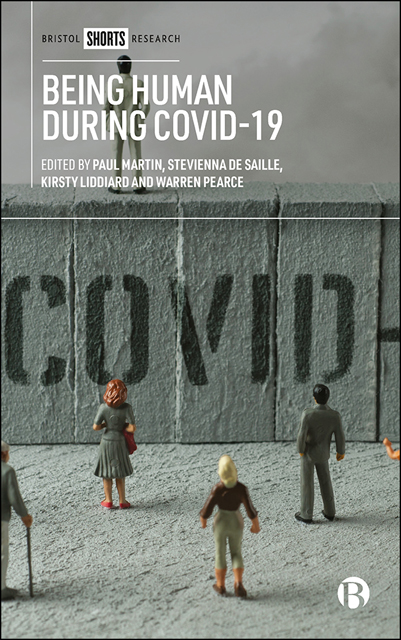sixteen - Inclusive Education in the Post-COVID-19 World
Published online by Cambridge University Press: 13 October 2022
Summary
Introduction
The COVID-19 pandemic has engendered and exposed inequality across society, and in few arenas more sharply than the education system. Disabled children have long been positioned as ‘outliers’ in a system created to embed neoliberal ideals – wherein success is presaged on a narrow concept of achievement, and anyone that cannot or does not meet these normative standards is deemed ‘less than’, and is, to adopt the parlance of critical disability studies, ‘othered’. This is despite the fact that for the past two decades, inclusion has been considered a cornerstone of national educational policy in England.
Even prior to COVID-19, disabled children in England were found to be having a poorer educational experience than their peers. The House of Commons Education Committee’s Inquiry into Special Educational Needs and Disability (SEND) in 2019 assessed the impact of the implementation of the Children and Families Act 2014, which was supposed to constitute the biggest reform of SEND education in a generation. Instead, the Inquiry identified not just structural issues (for example, inadequate funding, limited staffing capacity, absence of joinedup services) but also, in organizational and systemic behaviours failing to ensure accountability and inclusion, institutionalized ableism. The pandemic has served to exacerbate this trend, ushering in a raft of new practical, logistical and attitudinal barriers faced by disabled children. This active discrimination, perpetuated by the Coronavirus Act 2020, is symptomatic of long-term marginalization of disabled children in education, which focuses on making the child ‘fit’ normative systems, rather than being responsive to individual needs.
Therefore, despite its premise as a force for justice and equality, inclusive education often (unwittingly) perpetuates cycles of ableism: ‘as a humanist orientation, inclusion privileges human traits (thought, capacity, sense-making)’ (Naraian, 2020: 1). While this (at least superficially) egalitarian conception of humanism has fed into legislation that has sought to protect the rights of disabled children (for example, The UN Convention for the Rights of the Child, 1989; Children and Families Act 2014), it could also be argued that it fails to recognize the power and promise of individual difference, as well as our inevitable entanglement with non-human entities and systems. Therefore, this narrow concept of ‘inclusion as fitting in’ may, in actuality, be exclusionary.
- Type
- Chapter
- Information
- Being Human during COVID-19 , pp. 132 - 139Publisher: Bristol University PressPrint publication year: 2022

